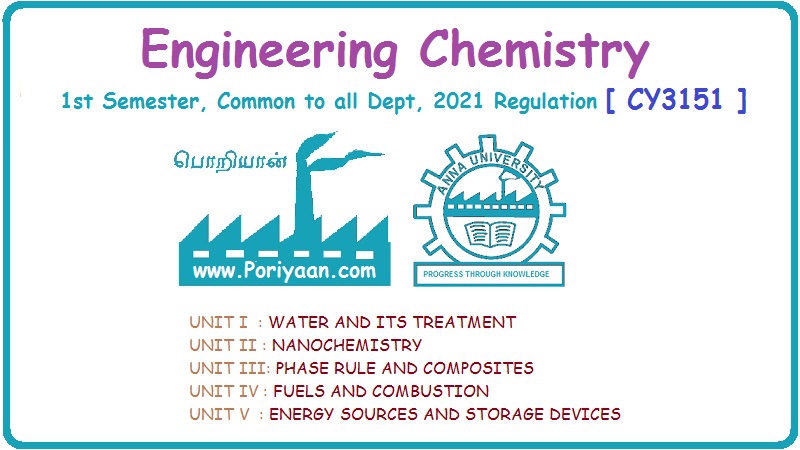Engineering Chemistry: Unit IV: a. Fuels
Diesel Oil
Fuels
It is a fraction obtained between 250 - 320°C during fractional distillation of petroleum. It is a mixture of C15H32 to C18H38 hydrocarbons.
DIESEL OIL
It is a fraction obtained between 250 - 320°C during fractional
distillation of petroleum. It is a mixture of C15H32 to C18H38
hydrocarbons. Its calorific value is about 11000 kcal/kg. It is used as a very
good diesel engine fuel.
Causes of knocking in CI engines (Diesel engines)
In a diesel engine, first air is alone compressed. This
compression raises the temperature of the cylinder to about 500°C. Then the oil
is sprayed into the heated air. This further raises the temperature as well as
pressure. The expanding gases push the piston and power stroke begins.
The combustion of a fuel in a diesel engine is not instantaneous
and the time between injection of the fuel and its ignition is called Ignition
lag or Ignition delay. This delay is due to the time taken for the vapourisation
of oil droplets and raising the temperature of vapour to its ignition
temperature. Long ignition lags lead to accumulation of more vapours in the
cylinder, which undergo explosion during ignition. This is responsible for
diesel knock. If the ignition lag is short, diesel knock will not occur.
1. Diesel index
The quality of a diesel oil is indicated by diesel index number
using the following formula.
Diesel index number = Specific gravity (API) × Aniline point in °F / 100

Aniline point and specific gravity is noted from (American
Petroleum Institute) Scale.
Engineering Chemistry: Unit IV: a. Fuels : Tag: Engineering Chemistry : Fuels - Diesel Oil
Related Topics
Related Subjects
Engineering Chemistry
CY3151 1st Semester | 2021 Regulation | 1st Semester Common to all Dept 2021 Regulation
